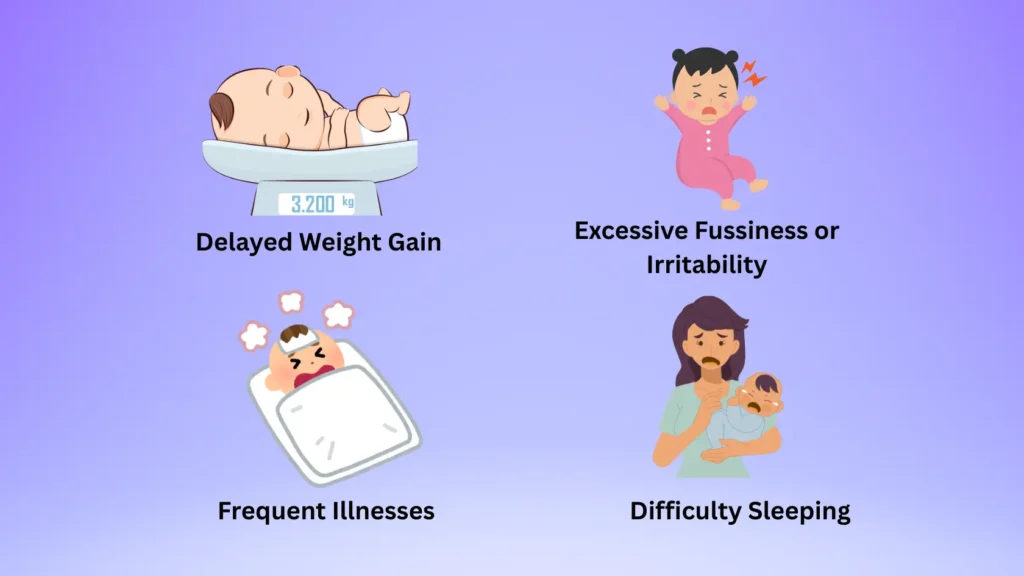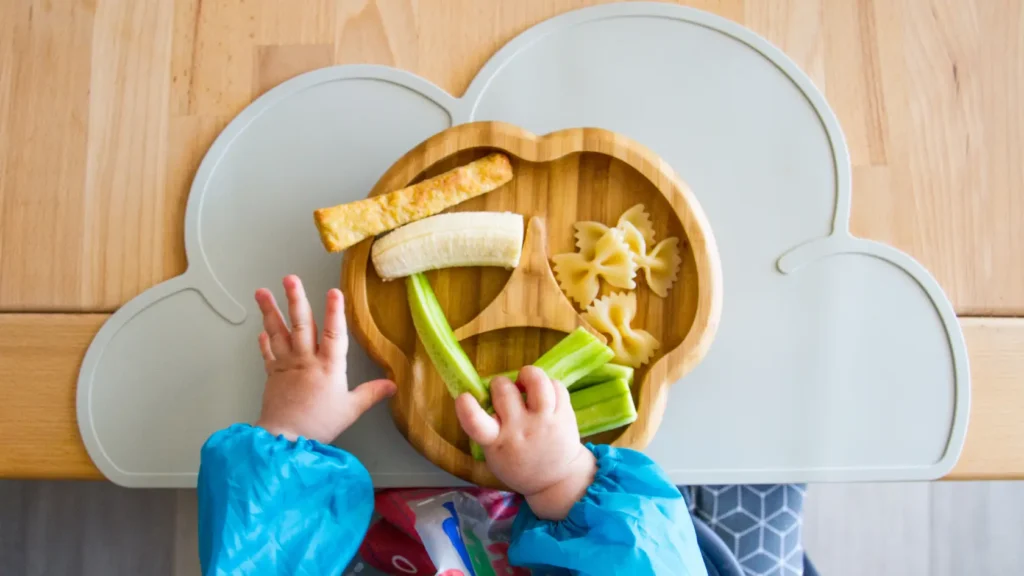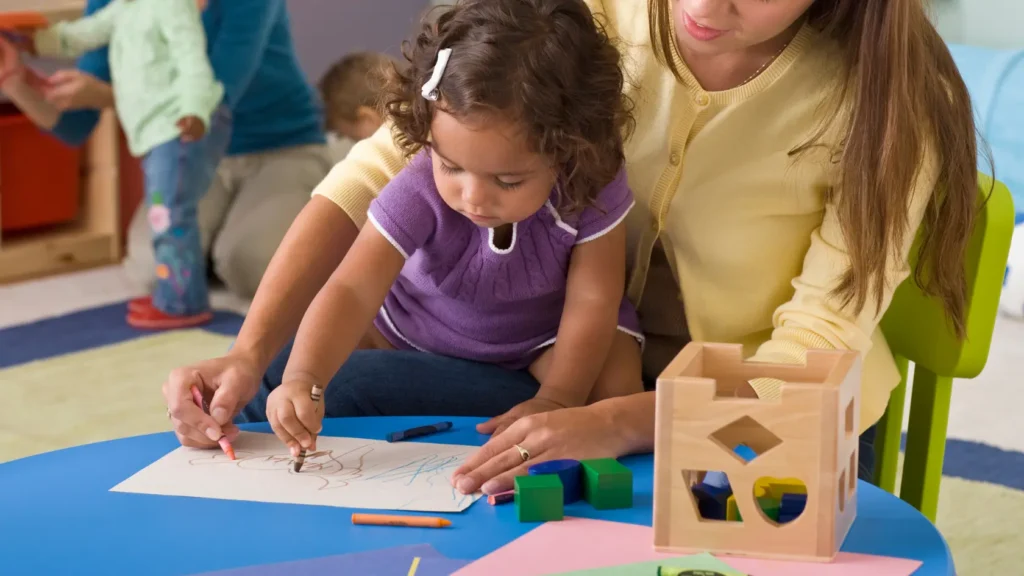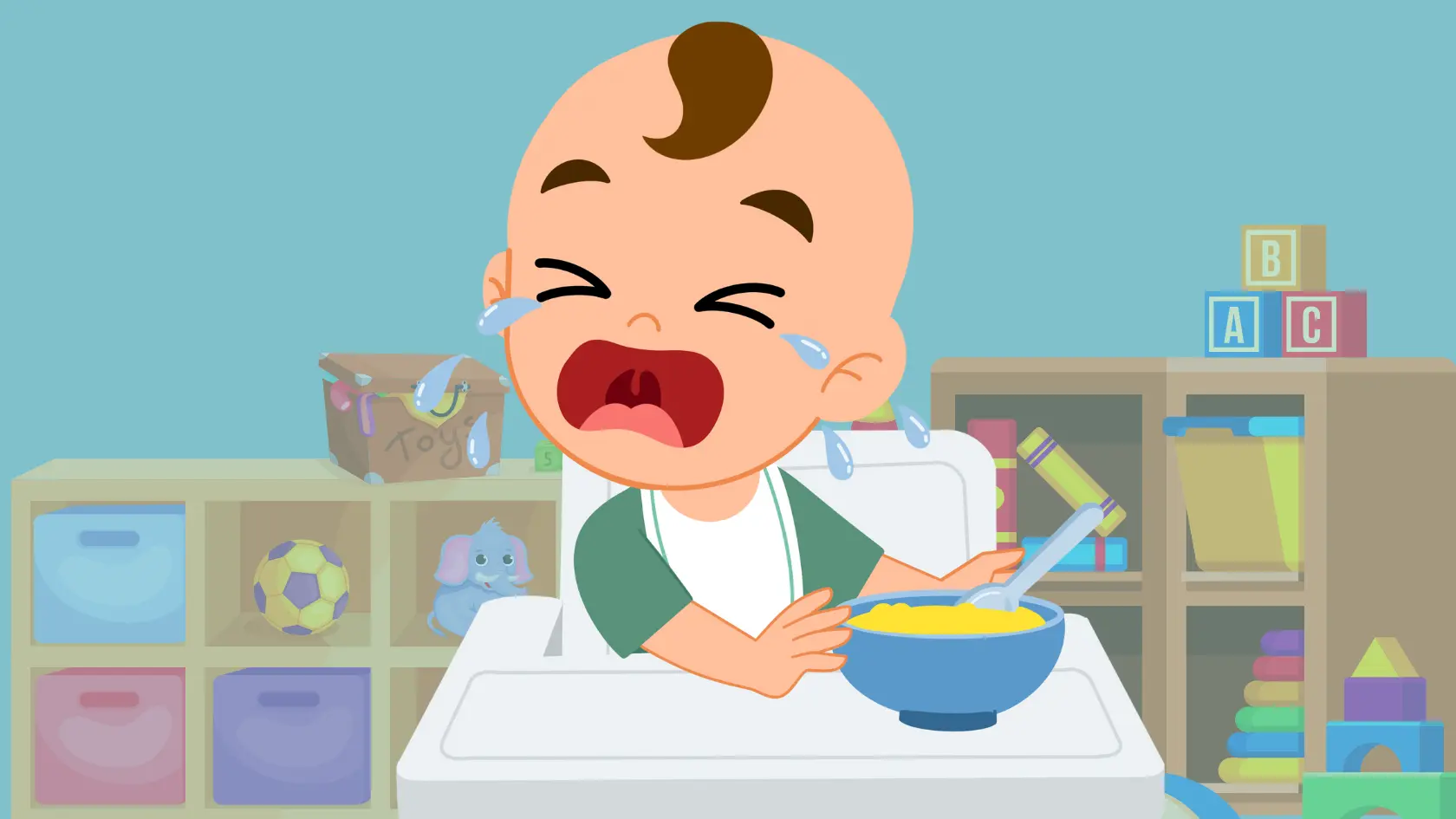When it comes to baby not eating at daycare, the causes are often multi-faceted. Below, we’ll break down the major contributing factors in greater detail and how each one influences your baby’s eating habits. This will give a clearer understanding of why your baby might refuse food at daycare and how to address it more effectively.
Table of Contents
- Why Is My Baby Not Eating at Daycare? Understanding the Causes
- How to Identify If Your Baby Not Eating at Daycare
- Nutritional Concerns When Your Baby Not Eating at Daycare
- Strategies for Improving Your Baby Not Eating at Daycare Situation
- Factors Behind Baby Not Eating at Daycare and Their Solutions: A Quick Overview
- Conclusion: A Holistic Approach to Solving Baby Not Eating at Daycare Problem
Why Is My Baby Not Eating at Daycare? Understanding the Causes

When a baby is not eating well at daycare, it can be disheartening, especially if they have a healthy appetite at home. Several factors may contribute to this problem, and understanding the root cause can help you address the issue effectively. Let’s break down some of the most common reasons your baby might refuse to eat while at daycare.
Separation Anxiety
For some babies, being away from their parents is a stressful experience. This is particularly true for babies who are still breastfeeding or have formed a strong attachment to their caregivers. If your breastfed baby is not eating at daycare, it could be due to a strong preference for your breast, making it difficult for them to adjust to bottle feeding or solid foods. The emotional distress of separation may reduce appetite, causing babies to resist meals entirely until they feel comforted and secure once again.
New Environment and Routine
A daycare setting introduces a lot of new stimuli that can overwhelm your baby. New faces, sounds, and a different feeding environment can cause them to feel distracted or anxious. If your baby is not eating or sleeping at daycare, it’s likely that they’re struggling to adapt to this unfamiliar environment, affecting their appetite. Babies are sensitive to surroundings, and without familiarity, they may focus on adjusting emotionally rather than eating, delaying their willingness to accept meals.
Change in Feeding Schedule
Daycare often follows a strict schedule, which may not align with your baby’s natural hunger cues. If the feeding times at daycare are different from what they’re used to at home, they may not be hungry when it’s time to eat. This can result in your baby not eating at daycare enough at daycare and causing concern. Babies thrive on consistency, so mismatched schedules can leave them uninterested in food, preferring to wait until they return home for comfort.
Health-Related Issues
If your baby is suddenly refusing food at daycare but eating well at home, it’s worth considering any health-related factors. A mild illness, teething, or even discomfort from a diaper rash can make eating less appealing. It’s essential to monitor your baby’s health and consult with a pediatrician if the problem persists. Physical discomfort, even subtle, often reduces appetite, and in a daycare environment, babies may find it even harder to focus on mealtimes.
Discomfort or Aversion to Food Types
Some babies may have specific food aversions that affect their eating habits at daycare. They may not like certain textures or flavors that are served, leading them to refuse meals. If your my baby does not eat at daycare, consider asking the daycare provider about the food options and whether any changes can be made. Early aversions, even to texture or smell, can strongly influence appetite, making familiar foods and gentle experimentation essential to building healthy eating habits.
How to Identify If Your Baby Not Eating at Daycare

Knowing when your baby’s feeding issues at daycare become more than just a phase can be tricky. However, there are some signs that suggest a more serious concern. It’s important to watch for these red flags:
Delayed Weight Gain:
If your baby is consistently refusing food at daycare and not gaining weight, it could be an indication that they’re not getting enough nutrition, which may lead to delays in their physical and cognitive development over time. Lack of proper intake also impacts muscle growth, bone strength, and overall energy levels, making it critical to address immediately.
Frequent Illnesses:
If your baby is not eating well at daycare, they may be more susceptible to colds, infections, and illnesses due to a weakened immune system caused by insufficient nourishment and lack of essential vitamins or minerals. Repeated sickness may signal long-term nutritional gaps, leaving your child vulnerable to chronic health issues if not properly corrected soon.
Excessive Fussiness or Irritability:
Persistent refusal to eat may lead to a baby being overly fussy or irritable due to hunger, discomfort, fatigue, or overstimulation from the daycare environment, which disrupts their emotional balance and well-being. Extended irritability can also impact social development, making it harder for babies to engage positively with caregivers and peers each day.
Difficulty Sleeping:
A baby who isn’t eating well may have trouble falling asleep or staying asleep, as hunger or discomfort significantly affects their rest patterns, leading to crankiness, poor sleep quality, and an overall unsettled mood. Over time, disrupted sleep cycles can further weaken immunity, delay growth, and interfere with your child’s overall healthy development and happiness.
Nutritional Concerns When Your Baby Not Eating at Daycare

Proper nutrition is vital for a baby’s growth and development. If your baby is not eating enough at daycare, it could lead to a variety of issues:
Physical Development Delays:
Babies who don’t get enough nutrients may experience slower physical growth, manifesting as delayed milestones like crawling, walking, or even gaining weight, which can cause concern for both parents and pediatricians monitoring their development. These delays can impact motor skills, coordination, and even the ability to engage in basic physical activities, further affecting their interaction with their environment.
Weakened Immune System:
A lack of balanced nutrition can compromise your baby’s immune system, making them more vulnerable to illnesses and infections, as they’re not receiving the necessary vitamins, minerals, and energy to stay healthy and strong. Prolonged malnutrition can leave them prone to respiratory issues, ear infections, and other common illnesses, slowing down their recovery times and overall vitality.
Behavioral Issues:
When babies don’t eat properly, they may become cranky or show behavioral signs of frustration, leading to mood swings or irritability. Hunger is a common cause of irritability, especially in babies who can’t yet express their feelings effectively or communicate their needs. This can lead to difficulty in managing daily routines, emotional instability, and a lack of engagement during playtime or with caregivers.
Strategies for Improving Your Baby Not Eating at Daycare Situation
Below are some additional strategies you can implement to address the issue of your baby not eating at daycare:
1. Start With a Familiar Routine
Consistency is key for your baby’s comfort. If you’ve noticed that your baby eats at daycare but not at home, or vice versa, creating a consistent routine will help them feel more secure. Try to keep the following in mind:

- Feeding Times: Mimic the times your baby eats at home, ensuring that feeding schedules match their natural hunger cues, creating a sense of predictability and security, and reducing any potential anxiety or stress around mealtime, especially if they’re still adjusting.
- Foods: If your baby has preferences for specific foods, talk to the daycare provider about offering these familiar foods in a similar form to what they eat at home, increasing their willingness to eat and promoting consistency in their nutrition for better adaptation.
- Comfort Items: Bringing a familiar item (like a favorite blanket or stuffed animal) can help ease emotional discomfort during feeding times, providing reassurance and a sense of safety while your baby adjusts to the new environment and daycare routine.
2. Communicate with Daycare Providers
Open communication is essential. Make sure you’re discussing your baby’s eating habits and any concerns with the daycare staff regularly. Here’s what you can discuss:
- Feeding Preferences: Share any specific foods your baby likes or dislikes, or whether they have preferences for textures and flavors, which can help daycare cater to their needs better and help the staff understand your baby’s eating patterns more clearly.
- Feeding Environment: Talk about how the daycare can make the mealtime environment more conducive to eating, such as reducing distractions, changing meal locations, or providing a quiet area for your baby to feel calm and comfortable during feeding times.
- Monitoring: Ask the staff to keep an eye on your baby’s eating patterns and report any significant changes in behavior or appetite, which can help detect potential issues early, especially if the situation doesn’t improve or resolve over time.
3. Reassure and Comfort Your Baby Emotionally
As mentioned earlier, separation anxiety can lead to a baby not eating or sleeping at daycare. Emotional reassurance is important, and here’s how you can help:

- Positive Reinforcement: Use positive reinforcement when you leave your baby at daycare. Reassure them with a loving tone and let them know you’ll be back, making them feel secure about your return and minimizing separation anxiety for a smoother transition.
- Comfort Items: Sending along a comfort item (such as a favorite toy or blanket) can provide your baby with a sense of familiarity, comfort, and emotional security while adapting to the daycare setting, making the separation easier on both of you.
- Consistent Goodbyes: Establish a comforting routine for drop-offs to help your baby feel more secure when you leave, reducing emotional distress associated with separation, and making it easier for them to settle into daycare routines without much fuss.
4. Adapt Feeding Methods to Baby’s Needs
For babies transitioning from breastfeeding to bottle-feeding or solid foods, the change can be challenging. Consider these tips:
- Bottle-feeding Tips: Start offering the bottle at home before daycare to help your baby get used to the new feeding method. Experiment with different bottle nipples or sippy cups to find what works best for your baby’s preferences and comfort, ensuring a smoother transition.
- Gradual Introduction of Solids: Start by introducing small amounts of solids at home before daycare. Gradually build up to more complex textures and flavors, ensuring that your baby is comfortable and familiar with the foods they’ll be eating at daycare, making the transition smoother and more manageable over time.
5. Keep Monitoring Baby’s Health
If your baby consistently does not eat at daycare, it’s important to keep an eye on their health. Conditions like teething or mild infections can reduce your baby’s appetite, so make sure you’re aware of any possible discomforts. If the issue persists for more than a few weeks, consult a pediatrician to rule out any underlying health conditions, ensuring proper care and attention for your baby’s overall wellbeing and growth.
Factors Behind Baby Not Eating at Daycare and Their Solutions: A Quick Overview
Factor | Cause & Impact on Eating | Solutions |
Separation Anxiety | Baby may refuse food due to distress from being away from the parent. | Gradual daycare transition, bring comfort items, reassure. |
New Environment | Overwhelming new surroundings can distract your baby from eating. | Create a quiet, calm space at daycare for meals. |
Routine Disruptions | Misalignment between your baby’s natural hunger cues and daycare’s schedule. | Align daycare meals with baby’s natural routine. |
Health Issues | Teething, cold, or food sensitivities can cause discomfort and food refusal. | Consult pediatrician, provide comfort for teething. |
Food Preferences | Baby may refuse unfamiliar foods, textures, or flavors. | Work with daycare to offer familiar foods and textures. |
Bottle or Feeding Method | Baby may resist bottle or solids when transitioning from breastfeeding. | Gradually introduce bottles at home, familiar foods at daycare. |
Conclusion: A Holistic Approach to Solving Baby Not Eating at Daycare Problem
When your baby is not eating at daycare, it’s essential to approach the issue holistically, addressing both the emotional and physical factors that may be contributing to the problem. From adjusting feeding schedules to improving the daycare environment and introducing familiar foods, there are multiple ways to support your baby through this transition.
Explore our Q&A for helpful tips and essential guidance.









